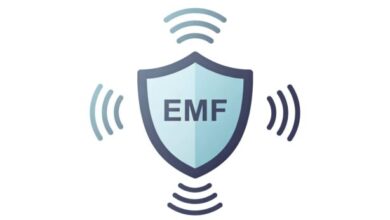
In this article, we’ll look at how VoIP phones work. Unlike traditional phone lines, VoIP phones rely on packet switching, so your calls will be more reliable. You’ll need a VoIP business phone service and a good internet connection to begin using VoIP. Once you have these, you can connect your phone handset to the VoIP system via ATA.
VoIP is based on analog landline connectivity to the POTS.
VoIP is based on analog landlines but can be integrated with modern IP-based solutions. Analog landlines are still common, and this technology is still used in many companies. However, VoIP is a great way for these companies to move away from legacy systems, and it can also be a great way to improve their customer service.
If you’re considering switching from analog landline connectivity to VoIP phones, here are some things to know before switching. First, disconnect your phone line from the phone company and plug in the VoIP device. If you have a traditional landline, you can still use the same cord to send and receive faxes. Just make sure to unplug the phone cord in case it accidentally gets plugged back in.
Another major advantage of VoIP is that it uses your current internet setup, which most businesses already have. This means that it’s not necessary to purchase expensive hardware. Since VoIP uses your current internet setup, it’s an ideal option for businesses that don’t want to invest in new technology. However, there is a learning curve with new technologies, and VoIP is no exception. If you’re considering VoIP for your business, compare its benefits against analog landline connectivity’s costs and complexity.
It converts voice data into digital signals.
VoIP uses codecs to convert voice data into digital signals, then transmitted over the internet. The voice data is decoded, compressed, and reassembled as it reaches the other end. Codecs are software or hardware devices that process voice signals in a certain way. In this way, VoIP can offer higher-quality audio, video, and multi-way conference calls.
VoIP systems use various speech-coding standards, including AAC-LD and H.323. These codecs vary in sound quality based on available bandwidth and computational requirements. Typically, the devices communicating over VoIP use different codecs and then negotiate to use the one that offers the best quality.
VoIP systems can also help businesses cut costs in several ways. The initial hardware costs and call charges are much lower than traditional phone systems. Plus, VoIP systems provide increased flexibility and agility. Whether your company needs more telephone lines or more remote workers, VoIP makes it easy.
It uses packet switching instead of RTP.
VoIP is a type of internet telephony that uses unique telephone numbers not tied to any physical location. A VoIP call can be anywhere worldwide, as long as he has a computer that can receive the call. The caller signals the computer that will receive the call, and the two computers agree on the technical details of the call. It is similar to how modems and fax machines establish a “handshake” at the beginning of the call.
VoIP has several advantages over conventional telephony systems. For instance, it eliminates the need for a circuit-switched network for voice, which is costly to maintain. VoIP also piggybacks on the resiliency of IP-based networks, allowing for fast failover after an outage. It also supports redundant communication between endpoints. It uses the Transmission Control Protocol, or TCP, to break a message into smaller packets. IP addresses are sent in the network, and each packet has a size of 20 ms.
VoIP is made possible through packet switching. The router will process the voice data after being divided into smaller packets. The router subsequently forwards the packets to the destination device. After that, the device reconstructs the message.
It’s more reliable than traditional ISPs
VoIP phone systems offer robust features such as intelligent call forwarding, which allows callers to reach an alternative number if the network is down. This helps businesses maintain business continuity and allows employees to work from home or anywhere in the world. These systems also have advanced call recording and call queueing capabilities.
VoIP phone systems can function even during an internet outage because of their cloud-based infrastructure. If your phone connection is down, your VoIP phone system will ring through a softphone on your PC or mobile device. In addition, you can pre-select the destination of incoming calls.
The VoIP system also offers scalability compared to traditional landlines, allowing you to expand as your business grows. You can add new lines quickly, whereas traditional landline service requires physical phone lines. VoIP systems also allow you to reduce the number of lines if you need to.



